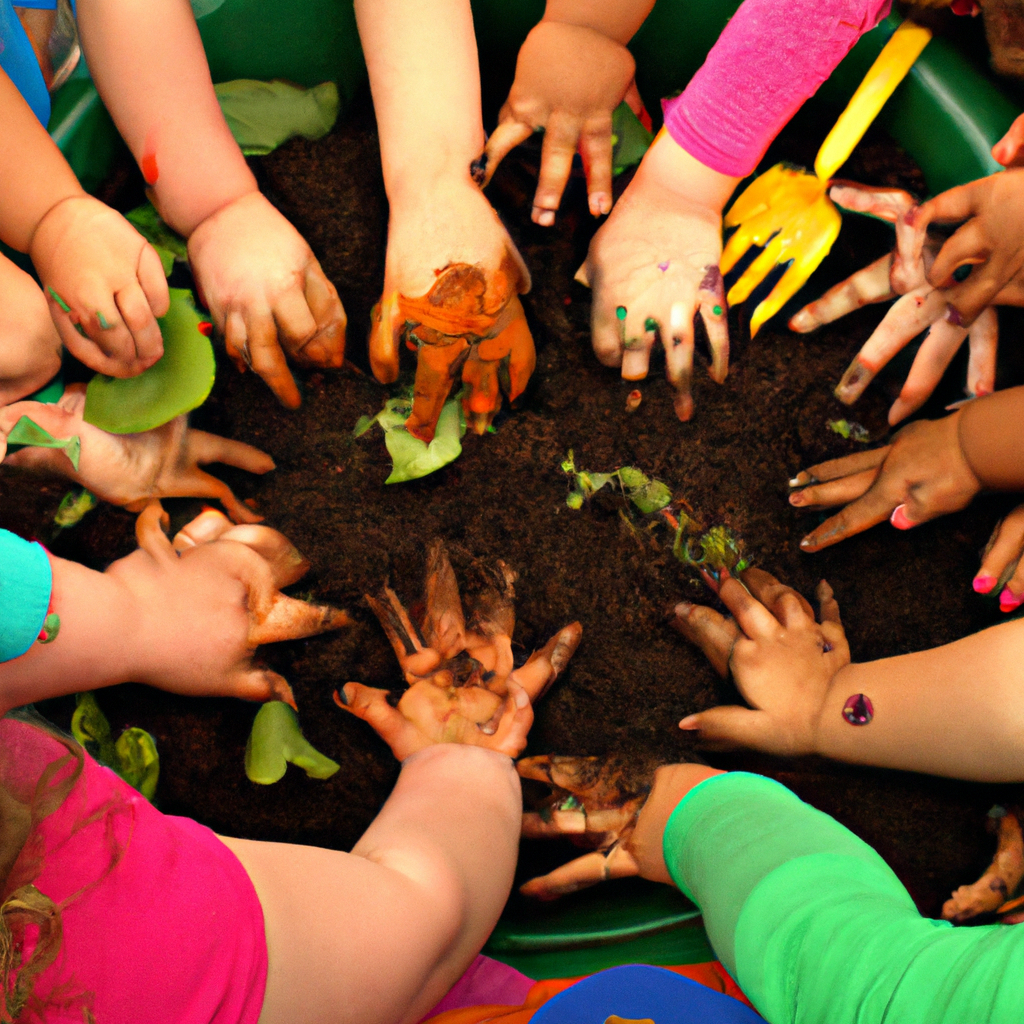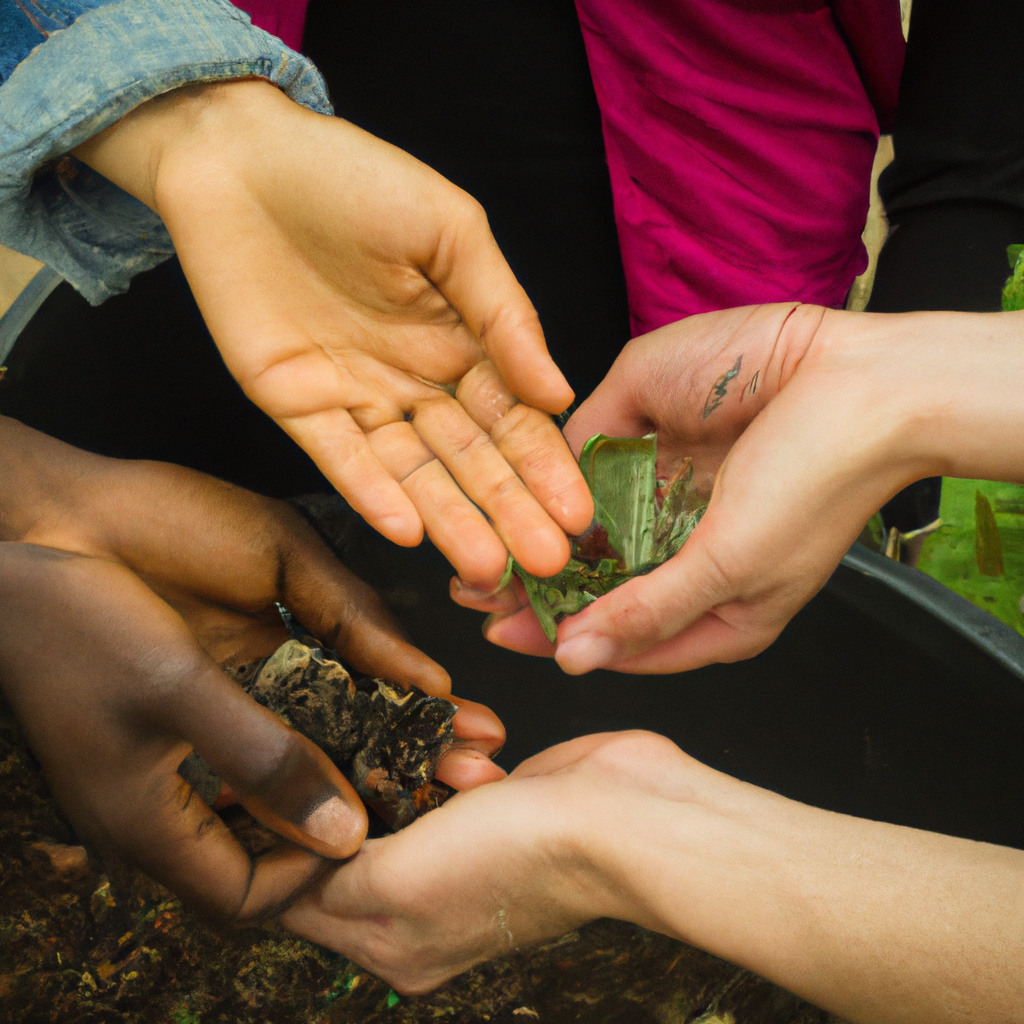
Imagine a bustling cityscape transformed into a thriving oasis of greenery and community engagement. That is the vision behind urban farming initiatives. But the question is, how can you involve the local community in this transformative movement? In this article, we will explore the strategies and approaches that can be taken to build meaningful connections and engage the local community in the exciting world of urban farming. From educational workshops to collaborative projects, discover how you can empower individuals to become active participants in shaping a sustainable and greener future for their urban neighborhoods.
Understanding the Local Community
Defining the local community
Before embarking on any urban farming initiative, it is essential to understand and define the local community. The local community typically refers to the people living in a specific geographical area and sharing common interests, needs, and values. By identifying the boundaries and characteristics of the community, you can better tailor your urban farming efforts to the specific needs and preferences of local residents.
Analyzing the demographics
To effectively engage with the local community, it is crucial to analyze the demographics of the area. This includes factors such as age, gender, income levels, and cultural diversity. Understanding the demographic profile of the community can help you tailor your messaging and outreach strategies, ensuring that they resonate with the target audience. It can also provide insights into the specific challenges and needs that may exist within the community.
Identifying community needs and interests
To successfully involve the local community in urban farming initiatives, it is important to identify their needs and interests. Conducting surveys, focus groups, or town hall meetings can be helpful in gathering information directly from community members. This will enable you to pinpoint what matters most to them and how urban farming can address their concerns, such as access to fresh produce, food security, or environmental sustainability. Taking the time to listen and understand the community’s needs and interests will lay the foundation for a successful engagement strategy.
Creating Awareness about Urban Farming
Educating the community about urban farming
One of the first steps in involving the local community in urban farming is to educate them about its principles, benefits, and practices. You can organize workshops, community meetings, or informational sessions to share knowledge about urban farming techniques, such as vertical gardening, hydroponics, or composting. Additionally, providing resources such as brochures, pamphlets, or online guides can help community members understand the basics of urban farming and inspire them to get involved.
Highlighting the benefits of urban farming
Raising awareness about the benefits of urban farming is essential in enticing community participation. Urban farming can offer numerous advantages, such as increased access to fresh and healthy produce, reduced environmental impact, and improved community resilience. By showcasing these benefits through success stories, case studies, and testimonials, you can demonstrate to the community how urban farming can positively impact their lives and the overall well-being of the community.
Promoting the importance of sustainable agriculture
In addition to explaining the benefits of urban farming, it is crucial to promote the importance of sustainable agriculture. Emphasize how urban farming can contribute to conserving natural resources, reducing greenhouse gas emissions, and fostering local food systems. By connecting urban farming to broader sustainability goals, such as combating climate change and promoting biodiversity, you can engage community members who are passionate about environmental issues and inspire them to support and participate in urban farming initiatives.

Collaborating with Local Organizations and Institutions
Establishing partnerships with schools and universities
Schools and universities are excellent partners for engaging the local community in urban farming initiatives. Collaborating with educational institutions allows you to reach out to students, teachers, and parents, who can become valuable ambassadors for your cause. You can offer educational programs, internships, or even incorporate urban farming into the curriculum. By involving the education sector, you’re not only empowering the community but also fostering a culture of sustainability from an early age.
Collaborating with local NGOs and community centers
Partnering with local non-governmental organizations (NGOs) and community centers can expand your reach and leverage their expertise in community engagement. NGOs often have established networks within the community and can provide valuable insights into the specific needs and challenges faced by residents. By collaborating with these organizations, you can tap into their resources, such as volunteers, event spaces, or funding opportunities, and work together towards common goals.
Engaging with religious institutions and local councils
Religious institutions and local councils are influential pillars of the community, making them valuable partners for urban farming initiatives. Engaging with religious leaders and communities can help promote the importance of sustainable living from a religious perspective. Additionally, working closely with local councils can ensure your urban farming initiatives align with local policies and regulations, and may even provide access to funding or public spaces for community gardening projects.
Involving the Local Government
Getting support from local authorities
To maximize the impact of your urban farming initiatives, it is crucial to garner support from local authorities. This support can come in various forms, such as public endorsements, funding, or access to municipal lands for community gardens. By briefing local government officials about the benefits of urban farming and its potential to address community needs, you can build a strong case for their support. It is important to foster positive working relationships with municipal leaders and establish ongoing communication channels to ensure their continued involvement and support.
Navigating regulations and permits
Urban farming can often be subject to regulations and permits, depending on the specific practices and locations. It is important to familiarize yourself with local regulations, zoning laws, and health and safety requirements to ensure compliance. In some cases, local authorities may need to make amendments or create exemptions to enable urban farming initiatives. By engaging in open dialogue with the relevant government departments early on, you can work together to find viable solutions and streamline the process of obtaining necessary permits.
Advocating for urban farming policies
In addition to navigating existing regulations, it is important to advocate for supportive policies that promote and facilitate urban farming. Engaging with local government officials and policymakers through public forums, meetings, or written proposals can raise awareness about the benefits of urban farming and advocate for policies that encourage its growth. By collaborating with other stakeholders and emphasizing the positive impacts of urban farming on the community and the environment, you can help shape urban farming policies that are inclusive, accessible, and supportive.

Organizing Community Events and Workshops
Conducting workshops on urban farming techniques
Organizing workshops on urban farming techniques is an effective way to engage the local community and provide them with hands-on learning experiences. These workshops can cover various topics such as starting a garden, composting, or pest management in urban spaces. By demonstrating practical techniques and providing opportunities for community members to actively participate, you can empower them with the knowledge and skills needed to embark on their own urban farming journey.
Hosting community gardening events
Community gardening events are a great way to bring people together, foster a sense of belonging, and showcase the power of collective action. These events can involve activities like planting, weeding, or harvesting, and can be organized in public spaces or community gardens. By involving the whole community, regardless of age or background, these events create a shared sense of responsibility and demonstrate that urban farming is a collaborative effort that benefits everyone.
Arranging educational seminars on sustainable living
Beyond the technical aspects of urban farming, it is important to organize educational seminars that promote sustainable living in general. These seminars can cover topics such as sustainable food consumption, waste reduction, or renewable energy. By broadening the scope and emphasizing the interconnectedness of different sustainability practices, you can inspire community members to adopt a holistic approach towards sustainable living and reinforce the importance of urban farming within that context.
Creating Opportunities for Community Participation
Establishing community gardens for shared cultivation
One of the most impactful ways to involve the local community in urban farming is by establishing community gardens. These gardens provide shared spaces where community members can come together to grow their own food, exchange knowledge, and foster social connections. By allocating plots to individuals or groups and providing the necessary resources, such as tools and water access, you create a platform for community participation and empowerment.
Encouraging volunteer programs for urban farming initiatives
Volunteer programs can play a crucial role in urban farming initiatives by mobilizing community members who are passionate about sustainable agriculture. By offering volunteer opportunities, such as planting days, maintenance tasks, or educational outreach, community members can actively contribute to the success of urban farming projects. Building a strong volunteer base also creates a sense of ownership and pride within the community, as individuals see the tangible results of their efforts.
Creating job opportunities in urban agriculture
Urban farming has the potential to generate meaningful employment opportunities within the community. By training and hiring community members to work on urban farms or in related roles, you can not only address unemployment but also promote economic resilience and self-sufficiency. Moreover, offering job opportunities in urban agriculture can encourage the younger generation to consider careers in sustainable food production, fostering the growth of the local farming industry.

Engaging with Local Businesses and Farmers
Forging partnerships with local food markets and restaurants
Collaborating with local food markets and restaurants can create valuable connections between urban farmers and the broader food system. By partnering with these businesses, you can establish direct market channels for locally grown produce, increasing its accessibility and visibility. Restaurants can also benefit from sourcing fresh, sustainable ingredients while supporting local farmers. These partnerships can help stimulate the local economy, promote local food culture, and build a more robust and resilient community food system.
Supporting local farmers through collaboration
Urban farming initiatives can complement and support existing local farmers by diversifying agricultural practices and expanding market opportunities. By collaborating with traditional farmers, you can learn from their expertise, share resources, or even establish mentorship programs that promote knowledge exchange between urban and rural farming communities. Working together, urban and rural farmers can create a more connected and sustainable regional food system.
Promoting the consumption of locally grown produce
To engage the local community in urban farming initiatives, it is essential to promote the consumption of locally grown produce. This can be done through educational campaigns, cooking demonstrations, or partnerships with local schools and institutions. By highlighting the quality, freshness, and nutritional benefits of local produce, you can encourage community members to make conscious choices that support local farmers and contribute to the local economy.
Implementing Educational Programs for Youth
Integrating urban farming into school curriculums
One effective way to involve youth in urban farming initiatives is by integrating it into school curriculums. By incorporating urban farming and sustainable agriculture topics into science, math, or environmental studies classes, you provide students with a practical understanding of these concepts. Additionally, hands-on activities such as gardening projects or field trips to urban farms can enhance their learning experience and foster a sense of responsibility towards the environment and their local community.
Organizing field trips to urban farms for students
Field trips to urban farms can be an exciting and educational experience for students. By visiting urban farms, students can witness firsthand how food is grown, learn about sustainable practices, and engage with farmers and experts in the field. These field trips can be supplemented with interactive workshops or demonstrations that deepen their understanding of urban farming techniques and inspire them to get involved in their own communities.
Offering youth mentorship programs in agriculture
To cultivate the interest and passion of young individuals in urban farming, mentorship programs can be established to connect them with experienced farmers or members of the local community. These mentorship programs provide guidance, knowledge sharing, and hands-on learning opportunities for youth interested in pursuing careers or hobbies related to agriculture. By providing a platform for intergenerational collaboration and learning, you can empower the next generation to become active participants in sustainable food production.

Utilizing Social Media and Online Platforms
Building an online presence for urban farming initiatives
In today’s digital age, social media and online platforms are powerful tools for engaging with the local community. Creating an online presence for your urban farming initiatives through a website, blog, or social media pages allows you to share information, updates, and success stories with a wider audience. It also provides a platform for community members to ask questions, share their experiences, and stay connected with ongoing urban farming efforts.
Engaging with the community through social media channels
Social media channels can be used to actively engage with the local community and facilitate two-way communication. By posting informative content, hosting Q&A sessions, or organizing online competitions, you can encourage community members to actively participate and share their thoughts. Responding to comments, acknowledging community contributions, and fostering a sense of online community will strengthen your connection with local residents and encourage their continued involvement in urban farming initiatives.
Sharing educational resources and success stories online
Online platforms offer the opportunity to share educational resources and success stories related to urban farming. By creating and sharing videos, blogs, or infographics, you can provide valuable information about urban farming techniques, tips for successful gardening, or inspiring stories of individuals who have benefited from these initiatives. These resources not only educate and inspire the local community but also create a sense of community pride and motivation to participate.
Evaluating and Celebrating Community Impact
Measuring the success and impact of urban farming initiatives
To assess the success and impact of urban farming initiatives, it is important to establish measurable goals and performance indicators. These may include metrics such as the number of community gardens established, the amount of produce grown, or the level of community participation. Regular evaluation of these indicators allows you to gauge the effectiveness of your initiatives, identify areas for improvement, and communicate the positive impact of urban farming to stakeholders and the broader community.
Collecting community feedback and suggestions
Community feedback is a valuable tool for continuous improvement and community engagement. Regularly collecting feedback through surveys, focus groups, or feedback forms enables you to gain insights into community satisfaction, concerns, and suggestions. Actively listening to community input and incorporating their suggestions into the planning and implementation of urban farming initiatives helps build trust, demonstrate responsiveness, and foster a sense of ownership within the community.
Organizing events to celebrate achievements
Recognizing and celebrating the achievements of urban farming initiatives is essential in sustaining community engagement and motivation. Organizing events such as harvest festivals, community markets, or award ceremonies allows community members to come together, share their experiences, and celebrate their collective efforts. These events create a sense of accomplishment and pride and serve as reminders of the positive change that can be achieved through community collaboration and urban farming.






